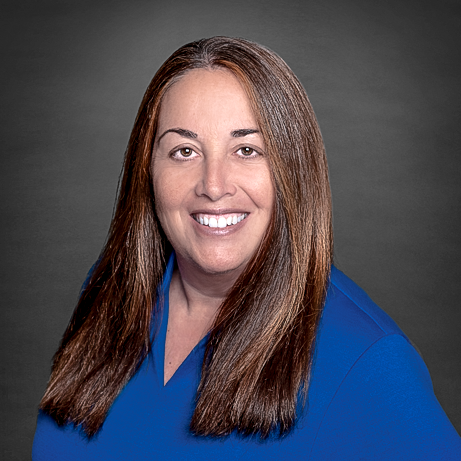ElevateNext 2020 Vision Series: Susan Hackett Interview
December 13, 2019
If the adage is right and “2020 is perfect vision,” we are less than one year away from clarity. But what if, in addition to perfect vision for the present, 2020 brought us the ability to see five years into the future? What would that look like in this strange eye chart we call the legal landscape?
Those of you who know us, know we are drawn to visions. Some might even say that we have had one or two visions of our own over the years. So, we decided to mark the imminence of 2020 by using the next 10 months to interview a series of wise people in the industry to ask what their powers of vision say the next 5 years will bring. We will feature their answers to the same four questions in an ElevateNext 2020 Vision blog series that will be featured here on the Elevate Services blog. In early 2020, we will write a piece summarizing the posts and will share our own vision of the future.
Why did we choose 5 years? Bill Gates said, “We always overestimate the change that will occur in the next two years and underestimate the change that will occur in the next ten.” Five years should put us squarely in the sweet spot.
While we often lament that there are not many visionaries in the legal world, we are well aware that there are far more than we will be able to feature on our blog. On several occasions over the years we have had the honor of sitting with many of them, sometimes in our own Collaboration Room, espousing visions like a gaggle of LSD-induced folk. So, read nothing into who is featured and who is not, except that we wanted to display a cross-section of views from diverse areas of the legal ecosystem.
We hope you find the series interesting (if you don’t, it was all Pat’s idea).
~ Nicole Auerbach & Patrick Lamb
Founders, ElevateNext
Interview with Susan Hackett

Susan Hackett
CEO, Legal Executive Leadership, LLC
Our first visionary is Susan Hackett, whom we have admired forever, has helped us many times with issues and opportunities at Valorem, and who continues to inspire us as a member of Elevate’s Advisory Board. Not many people have a better handle on what’s happening in the corporate legal space, so Susan was a natural person to lead off this series of interviews. And, as you can see, she did not disappoint!
Q: What do you predict will be the two biggest changes in the legal profession as of 2025 and why?
First, I predict that the majority of clients who purchase “legal solutions” or services will not hire or retain lawyers. And the majority of those who are clients and consumers, but not paying customers, in the legal system, will be served by no lawyers at all.
That’s not such a radical concept if you think about the increasing use of technology and automation to provide services formerly provided manually by lawyers, and how likely it is that we will be able to bridge a significant span of the access to justice divide via technology (therefore dramatically increasing the number of clients who are served for the first time by someone or something other than a lawyer performing in a traditional role).
Further, the fastest growing segment of client service providers are not law firms, law departments, or public service institutions, but companies that are very skilled and highly successful in packaging and delivering business or practical solutions to legal problems. Those companies or developers, and the systems they foster, will likely employ some lawyers, but lawyers will be a minority percentage of the delivery team.
Lawyers should remember that most of the legal services we provide are highly fungible (even if they are important and sophisticated); many people in the marketplace can perform “legal” tasks–from writing contracts to inking deals. Lawyers learn the elements of our craft that aren’t fungible and that can’t be as easily duplicated (and that coincidentally, clients prize most)–the counseling and judgment roles–on the job and over the course of years, usually at the elbow of experienced lawyers who demonstrate the ropes. The non-fungible stuff isn’t taught in law school and can’t be easily captured in a playbook. So if lawyers are smart AND agile in delivering on their competitive advantage in the future, they must commit to re-engineering their roles to focus on their highest value, and to re-inventing their service model to one that promotes iterative practices. These practices are the only ones that can keep pace and flexibly partner with the workers and systems that better deliver the routinize-able, the commoditize-able, and the analytical services. Lawyers’ future value will derive from anticipating client needs and applying their perspective, advice, advocacy, experience and judgment to complex tasks, risks, and issues. They’ll have to learn to let go of and even leverage the repetitive tasks they profit from today.
This leads me to the second big change: how we’ll solve the “pipeline of talent” problem.
The disruption we’re seeing in the profession and the legal marketplace now creates ever-growing tension and concerns over how law schools educate and prepare new lawyers for their future, how new lawyers will learn the “craft” as well as the fundamentals of excellent legal service provision without access to the routine and commodity work that tech and other workers perform more efficiently, and how mature lawyers will earn their living applying old-school services in a new-school market of clients and competitors.
Our profession relies heavily on workers who are “elevator assets”–namely, folks who carry all relevant knowledge and expertise about how to apply their craft with them in their heads up and down the elevator to and from work every day. So, for instance, if an experienced and trusted counselor leaves the firm, the value they provided to clients leaves with them. If an experienced lawyer is not incentivized or even capable of sharing her knowledge with the next generation of lawyers coming up behind her, the firm will not be able to fill her shoes when she does eventually leave. We’re intentionally horrible at creating and promoting knowledge sharing practices and successful succession planning. And if there are going to be fewer and fewer firms, law departments, public interest jobs and practicing lawyers as a result of increasing competition from outside the profession and the application of new technology and automation, how will we pipeline future talent into the profession? How will the profession remain relevant? New lawyers won’t be learning the craft of practice by participating in or even supervising a contract management system (and they’ll fight for that job with other smart college grads); they won’t learn the “counseling” role if they don’t have the broad and sophisticated client-facing experiences to develop their judgment skills.
The change, therefore, will be one driven by market forces and necessity: to move away from expertise derived from a traditional law school education, then a traditional training ground in a firm or a public service job, then practice and incubation over the years involving direct work with clients solving an array of legal problems, etc, toward talent that is derived from environments that may include elements of those things, but certainly won’t be centered exclusively on them. We’re more likely to see a much more multi-disciplinary approach to “legal services” education and a much more multi-experienced pool of workers who are assigned to drive the engines of addressing legal problem-solving. And legal decision-making will be increasingly, and perhaps appropriately for most of the legal marketplace, driven by data/analytics, rather than by 30 years of shoe leather working on diverse legal issues with sophisticated clients. Will our profession welcome and encourage these new co-collaborators, these multidisciplinary experts, and integrate them into the institutions we value? Or will the legal profession become the least likely and most under-used source of talent to provide clients with trusted legal services?
Q: What should be the biggest change as of 2025 but won’t be?
The application of good design principles by lawyers to create leading and valued client solutions.
Lawyers, for all the sustaining changes they will be required to make in the coming years, will continue to produce what sold well 10 years ago, or what they believe is valuable, or what they want to sell, rather than what their clients want to use or buy. They will not spend time on transformative change; they will never develop the iPod in the Walkman world of legal services because they will continue to argue that none of their clients have ever asked them for it.
Over the course of the next ten years, as a group, they won’t question or ask their clients piercing questions about how to address emerging needs or fill service gaps. They won’t use data or analytics to think about what the facts–rather than their “guts” or experiences–tell them the market wants. They will advance in some ways, but they will not engage in re-designing the legal service market (even as others from outside the profession will). They will re-arrange the deck chairs on the Titanic, but never willingly change direction to avoid the iceberg.
Q: If you could design something that does not exist right now that you think would be of help to you or the industry in 2025, what would it be?
Virtual alliance networks and collaborative platforms that allow those with the right skills and expertise to move in and out of work–just in time, just as needed. This would be of benefit to clients who struggle to find just what and who they need in real time without the unnecessarily high costs that result from the overhead of huge firms or departments or suppliers, and it would also be of benefit to lawyers who are interested in plying and perfecting their craft in the marketplace, but don’t have a meaningful and economically rational way to reach clients and demonstrate their value. These kinds of platforms could include access to resources or allow clients and lawyers to connect to services and the expertise of others beyond law to create solutions for clients via virtual and holistic teams. It should be easier for lawyers and clients to move in and out of relationships so that for both sides, there is a focus on just what’s needed, just in time. This doesn’t preclude others continuing to provide value via long-term, institutionalized relationships (indeed, it may make that kind of service more valuable and valued in the long run); this idea is simply aimed at making services and service provision more viable for those who can’t afford or don’t value that “institutionalized” model.
Q: If the current you could give advice to the future you about anything (doesn’t have to be law-related), what would it be?
Trust your creative brain; it won’t be wasted in the legal profession unless you allow it to be. You’ll have to work harder, take less money, and put up with lots of cynicism to successfully unleash your creativity in a world that wants you to conform your work and your life to the way legal has always been done. But if you’re persistent, you’ll not only succeed, but enjoy the ride. The profession of 1900 or 2000 doesn’t get to dictate what you as a lawyer will do to make your living in 2020 or 2030; it doesn’t get to create any boundaries that you can’t choose to break. And only by thinking outside of the box will you find the most successful path forward to create the profession you want to be in, rather than the one you joined.
Back to Expertise

 Patrick Lamb
Patrick Lamb
